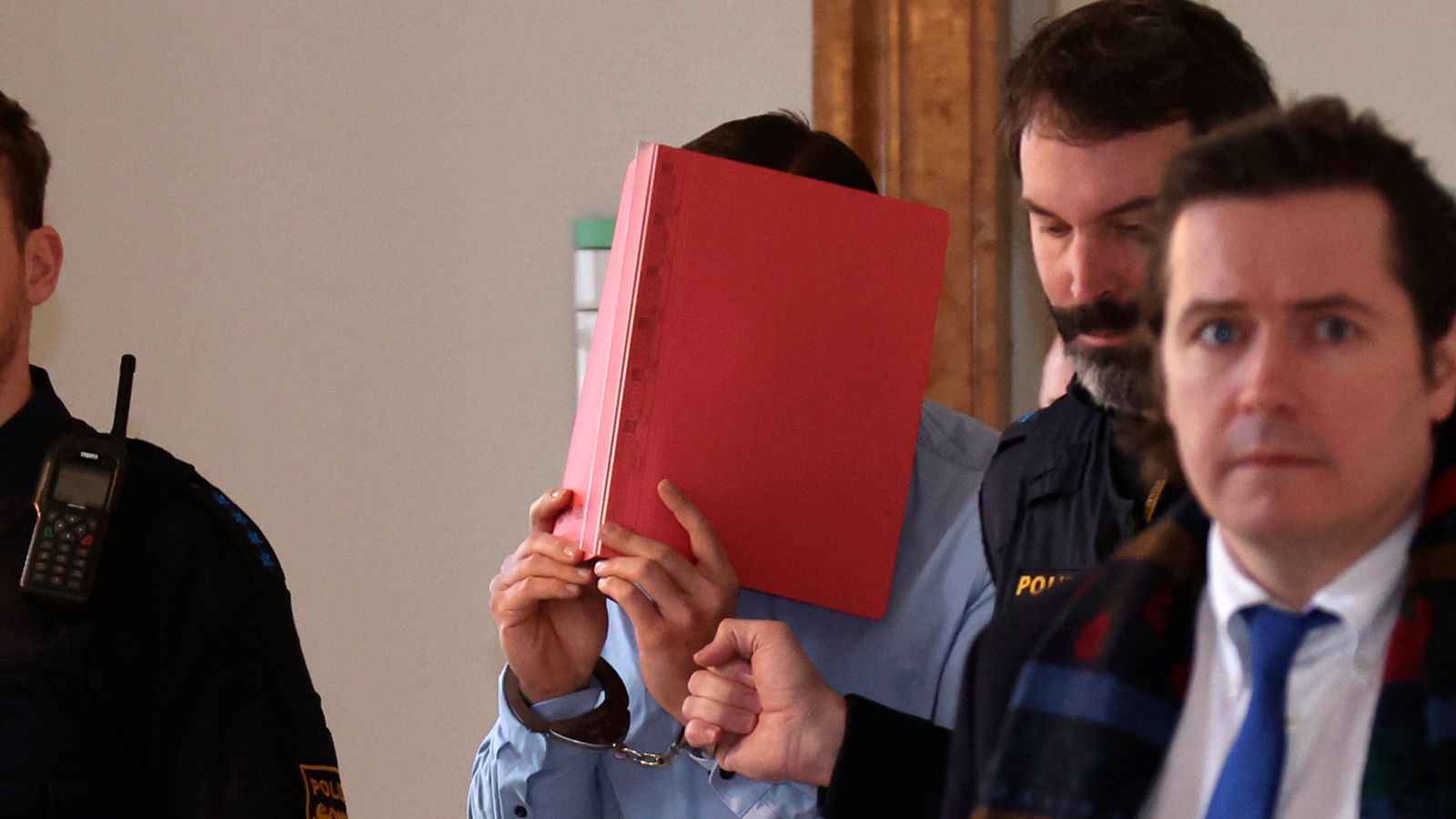A US man has admitted to murdering an American woman he also raped, by pushing her down a ravine near a famous German castle last year.
The 31-year-old admitted to charges of murder and rape with fatal consequences at the start of his trial at Kempten District Court in southern Germany on Monday.
The defendant, whose name has not been released in line with German privacy rules, is also charged with attempted murder and possessing child pornography and could be jailed for life.
Defence lawyer Philip Mueller said in a statement that his client, who covered his face with a file as he entered court, had “committed an unfathomable crime”.
In Germany, defendants do not formally enter pleas to charges, but the man confirmed what his lawyer said and did not answer any questions.
The defendant met two American women, aged 21 and 22, while walking near Neuschwanstein Castle, one of Germany’s best-known attractions, in June, prosecutors said.
The trio were close to the Marienbruecke, a bridge over a gorge that offers views of the nearby castle.
After luring them away from the trail, the man attacked the younger woman, forcing her to the ground and trying to undress her.
When the other woman attempted to intervene, a scuffle ensued, and the suspect allegedly pushed her down a steep slope.
She fell about 165 feet (50 metres) but, despite sustaining injuries to her head and multiple bruises and grazes, she survived.
The suspect is alleged to have then strangled the younger woman until she was unconscious and raped her. Prosecutors said he then pushed her down the ravine to her death.
Read more:
US skier dies in Kosovo avalanche
‘Someone will die’; Influencer boxing warning
Man sues after $340m lottery win ‘a mistake’
A laptop and mobile phones belonging to the suspect, who was arrested shortly after the attack, were recovered containing child sexual abuse material, according to prosecutors.
Murder charges carry a maximum sentence of life imprisonment in Germany.
A verdict is expected to be announced in mid-March at the earliest.
This story originally appeared on Skynews


